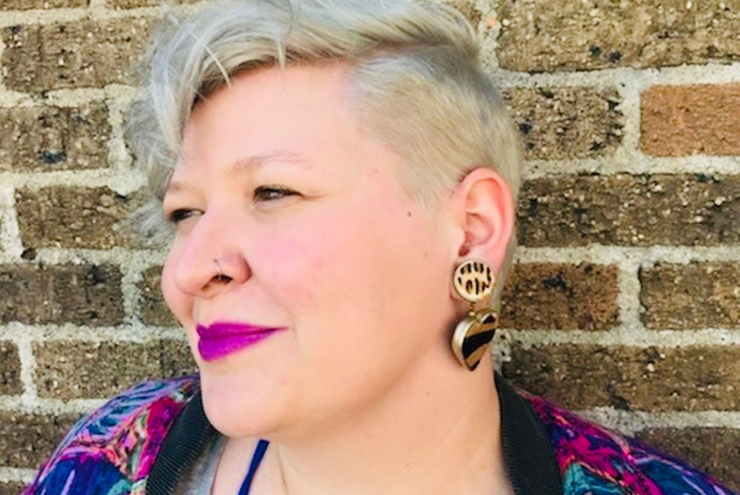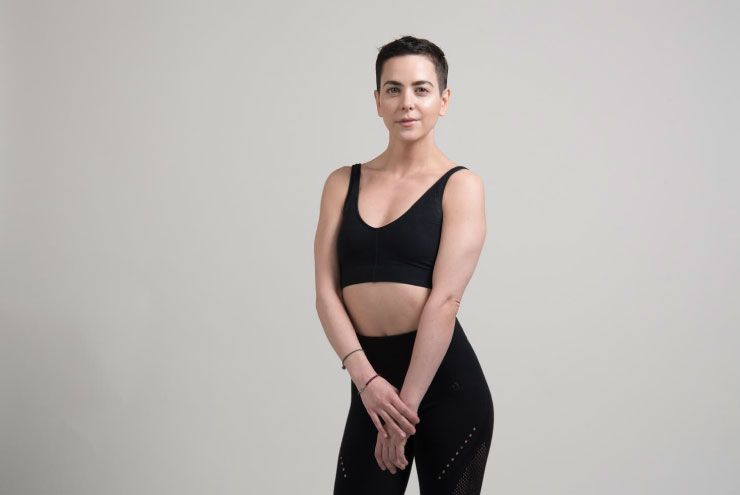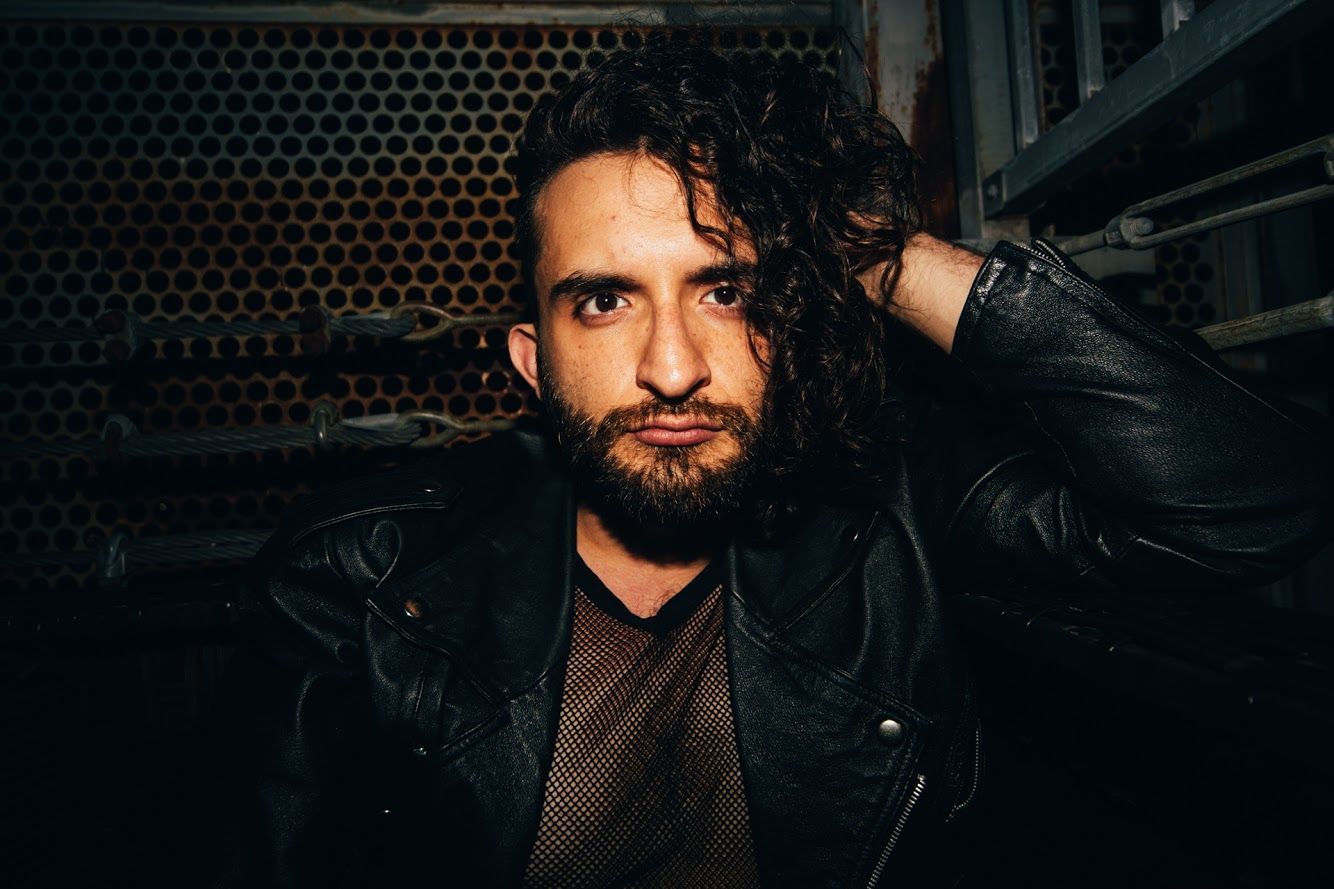By Jayce Tyler
Growing up in rural Alabama was difficult for University of Houston professor Dr. Jess Waggoner. Yet, despite being surrounded by gendered expectations, they persevered and found ways to express themselves as a young, queer, non-binary person. In particular, singing in church and reading were ways they could be momentarily free. “As a fat, femme, disabled, non-binary scholar with a deep love for glitter, crop-tops, bolo ties, and camp, finding my place in the academy has not always been easy,” says Dr. Waggoner. “Before I earned my PhD, I was a working–class, first-generation college student who struggled to navigate the class codes of higher education.”
The oldest of 11 and a proud southern queer, Dr. Waggoner conducts research at the intersections of disability studies, queer theory, and critical race studies. They have a passion for investigating early instances of disabled African Americans, women, and queer people in the archives. “As a white scholar, I am implicated in and benefit from educational systems that marginalize students of color, as well as the centering of whiteness in queer studies and disability studies,” they explain.
When not teaching or researching, Dr. Waggoner designs and conducts workshops on disability access in feminist classrooms, as well as how queer spaces and organizations can be more accessible and inviting to the queer disabled community. They have also worked to bridge their past and present in creative ways, such as starting a drag gospel troupe and making genderqueer country music. As an educator, they encourage students to claim agency and ownership over their education because even universities can be inhospitable or hostile to marginalized students. They’re also passionate about helping fellow faculty members make their courses more accessible and inclusive to a wider range of student identities. Dr. Waggoner is particularly inspired by University of Houston students’ abilities to juggle multiple jobs, activism, and caregiving, while still showing up to class, ready to learn.
This fall semester, Dr. Waggoner will be conducting the first “Trans and Non-Binary Studies” course at the University of Houston. “When we encounter words such as non-binary, genderqueer, or androgynous, there is a very specific ‘look’ that comes to mind: white, thin, and nondisabled,” says Dr. Waggoner. “I’m looking forward to having conversations with my students about how one doesn’t need to present any particular way in order for their identity to be recognized. For example, people around me tend to struggle with my pronouns because I often present as a fat femme, and fat bodies are often very gendered.”
The Trans and Non-Binary Studies course will place media such as Kai Cheng Tom’s Fierce Femmes and Notorious Liars: A Dangerous Trans Girls’ Confabulous Memoir and the film Paris is Burning alongside creative, critical, and activist assignments of the students’ choosing. Each week will introduce a “song or music video of the week” highlighting gender nonconforming performers, including Houston’s own Stoo Gogo. “Through works like these, we will be thinking about the futures of transfeminism, the persistence of femmephobia and transmisogynoir, and how to combat the whiteness inherent to queer and trans visibility.”
One assignment in the course will require students to research and share information on resources for transgender people in Houston and Texas. Dr. Waggoner will also host a visit from the Houston–based Transgender Foundation of America, and the class will learn about the popular conference Gender Infinity. In addition, students will be asked to explore one of Dr. Waggoner’s particular passions, the intersections between disabled and trans experiences, specifically regarding healthcare and bathroom access. By dispatching in groups across campus with an access checklist, students will get a hands-on experience of what gender and disability access shortcomings look like. The class will also discuss the recent heightened visibility of trans people in media and the corresponding violence towards the trans community, particularly trans women of color. “We’re thrilled about the tremendous support for trans studies, queer studies, and disability studies at UH, but my term in the Visiting Scholar position is ending this year. Our students have demonstrated a great need and desire for more WGSS courses. We worry about the future of Women’s, Gender and Sexuality studies programs, and whether there will be continued support for us and our students in the future with the majority of college courses being taught by faculty on temporary contracts, many of whom are multiply-marginalized.”
Though Dr. Waggoner has been teaching queer studies for many years, this is the first time, with support from the University of Houston’s Women and Gender Sexuality Studies program, that they have been able to devote a full course to transgender studies. The University of Houston holds a significant presence of trans and gender non-conforming students, and Dr. Waggoner is excited to create a space where such individuals are able to grow as thinkers. Their goal is to shape their classes in a way that shines a light on their students’ experiences and communities.







